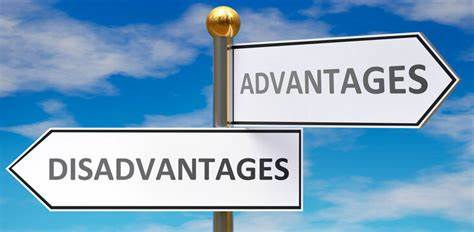Should I go Limited or stay as a Sole Trader??
- rosabooks1
- Jun 11, 2024
- 5 min read

A Sole Trader (Sole Proprietorship) is defined by ‘Running a small business entirely by yourself’.
With no Partner of Shareholders to answer too or work with, the Sole Trader is able to make business decisions and make choices by themselves, they have full control.
The Sole Trader (or Self-Employed person) and the business are looked at as the same entity.
Therefore, in the eyes of the law, the Sole Trader is personally liable for all losses or debts the business may have. Any personal assets can be seized to pay off these debts.
Although the Name (Sole Trader) suggests there is just one person in the business, Sole Traders are able to employee staff members. This would be done by registering with HMRC as a registered employer.
A Sole trader is taxed as an individual (known as income Tax).
After Expenses are deducted from the income (also known as Net Income) this is the total profit, it is the amount that will be subject to Income Tax rules.
The Sole Trader must register and carry out a Self- Assessment every tax year if they;
Earn more than £1000 in a single Tax year (April to March)
Want to make Voluntary Class 2 National Insurance
Need to provide proof they are Self-Employed
As a Sole Trader you will be required to;
Maintain business records of income and expenditure, have receipts and invoices to show HMRC if an assessment is ever carried out.
Pay tax on the profits and National Insurance Contributions.
If the Business turnover is £90,000 or more, the Sole Trader must register for VAT.
Advantages and Disadvantages of being a Sole Trader:
Advantages Disadvantages
Easy to set up | Not Tax efficient meaning less tax savings |
Full Control | Unlimited Liability (Debts) |
Easy to finish and close the Business | Limited Resources or Expertise |
Advantages
It is quick and easy to set up a Sole Trader business, with a simple registration with HMRC, a domain name for the website and secure a business name (that is available and not used by another business, it can’t have the words ‘Limited’ or Ltd in the name), you can quickly get going on your Sole Trader business.
As mentioned above you have full control of the business decisions or choices without having to consult or compromise.
If you want to finish the Sole Trader Business, it is very simple to do, by informing HMRC and Closing all Business media down.
The Disadvantages
There are potentially better Tax savings to be made if you own a Limited company.
The main tax implication on a sole trader is paying Income Tax on all profits.
As mentioned earlier, the accounting system for Sole Traders or Self-Employed is to take the Expenditure away from the Income and the amount you are left with is considered profits.
You then pay Income tax on this amount. There is not a way to leave some profit in the business to expand or grow the business, without paying tax on it.
The 2024-25 figures for Income tax vs Dividend is;
Band | Taxable Income | Tax Rate | Dividend Tax Rate |
Personal Allowance | Up to £12,570 | 0% | 0% |
Basic | £12,571 to £50,270 | 20% | 8.75% |
Higher | £50,271 to £125,140 | 40% | 33.75% |
Additional | More than £125,140 | 45% | 39.35% |
Business owners who have a Limited Business are able to pay themselves a combination of PAYE salary and Dividends.
Limited Company
A Limited company is defined as ‘A private company whose owners are legally responsible for its debts only to the extent of the amount of capital that they invested’
Having 'limited liability' status means the company is an entity in its own right separate from its owners and has a status in law.
The assets, liabilities and profits belong to the company not its owners.
Therefore, if the company falls into Debt, the owner is not personally responsible and will not risk losing their private assets.
This adds a layer of security that a Sole Trader is not able to.
In all limited companies there are Shareholders, this is often in small business, the Director (or owner of the business) who may have 100% of the shares.
If there are more Shareholders then the decisions of the business will need to be made between them. More on Shareholders another time.
Advantages and Disadvantages of a private Limited company
Advantages Disadvantages
Reduced Risk of Liability | Higher Set Up Costs |
Higher Business Profile | More Admin |
Lower Tax | Public Scrutiny |
Easier access to funds | Financial Reporting |
Protected Business Name | Must have an Accountant to file year end |
Advantages
Being a Limited company does give a perception of a more substantial business than that of a Sole trader.
Customers and investors are likely to be more confident that the business is reliable and able to meet their needs when it is a Limited company.
As mentioned before there are tax benefits to being a Limited company.
However, you will be required to pay Corporation Tax on all Profits. (This is after all allowable business expenditure is taken off).
The Corporation tax fee 2024-2025 on all profits stand at;
Small Profits Rate | Up to £50,000 | 19% |
Main Rate (Eligible for Marginal Relief) | Between £50,000 - £250,000 | 25% |
Main Rate (No Marginal Relief) | Over £250,000 | 25% |
When a limited company is looking for funds, as grants or business loans or even credit accounts at suppliers, you will need to be a limited company to qualify.
You can also sell shares in your company when Limited to provide a cash injection if needed.
When you register your limited companies name with Companies House, the name is protected and cannot be used by any other business. This is especially important fi you have rival companies that may be trying to sell products in your name etc.
Disadvantages
There is a lot more to do to set up as a Limited company.
You will need to register with Companies house which has a fee, although this is not a big fee (£12), you have to have a registered address, which will be available to the public.
This can be your accountant if they are happy to do so. The Registered address, is where all correspondence from HMRC will go to and it can not be a PO Box address.
You will also need a servicing address, this is again made known to the public and must be an official address of the business.
The Limited company must have at least one Director.
The Directors job is the run the business day to day and make all decisions.
The rules for being a company Director are;
1. You must be over 16 years old
2. You cannot be Bankrupt
3. You can not be a disqualified Director
4. You cannot be the auditor of the company
There has to be at least 1 Shareholder. All records financial and others, have to be up to date. Health and Safety regulations for each industry needs to be met.
You will need to prepare a ‘Year End’ each year that has to be filed to HMRC via a qualified accountant. This will have a financial implication.
All Records for income and expenditure will need to be accounted for and kept.
The End of year accounts will be published online and members of the public will be able to see these.
A Bookkeeper is highly recommendable to ensure your figures are always up to date and that all legal implications are being met. You are able to make better decisions based on your financial data when it is all live figures.









Comments